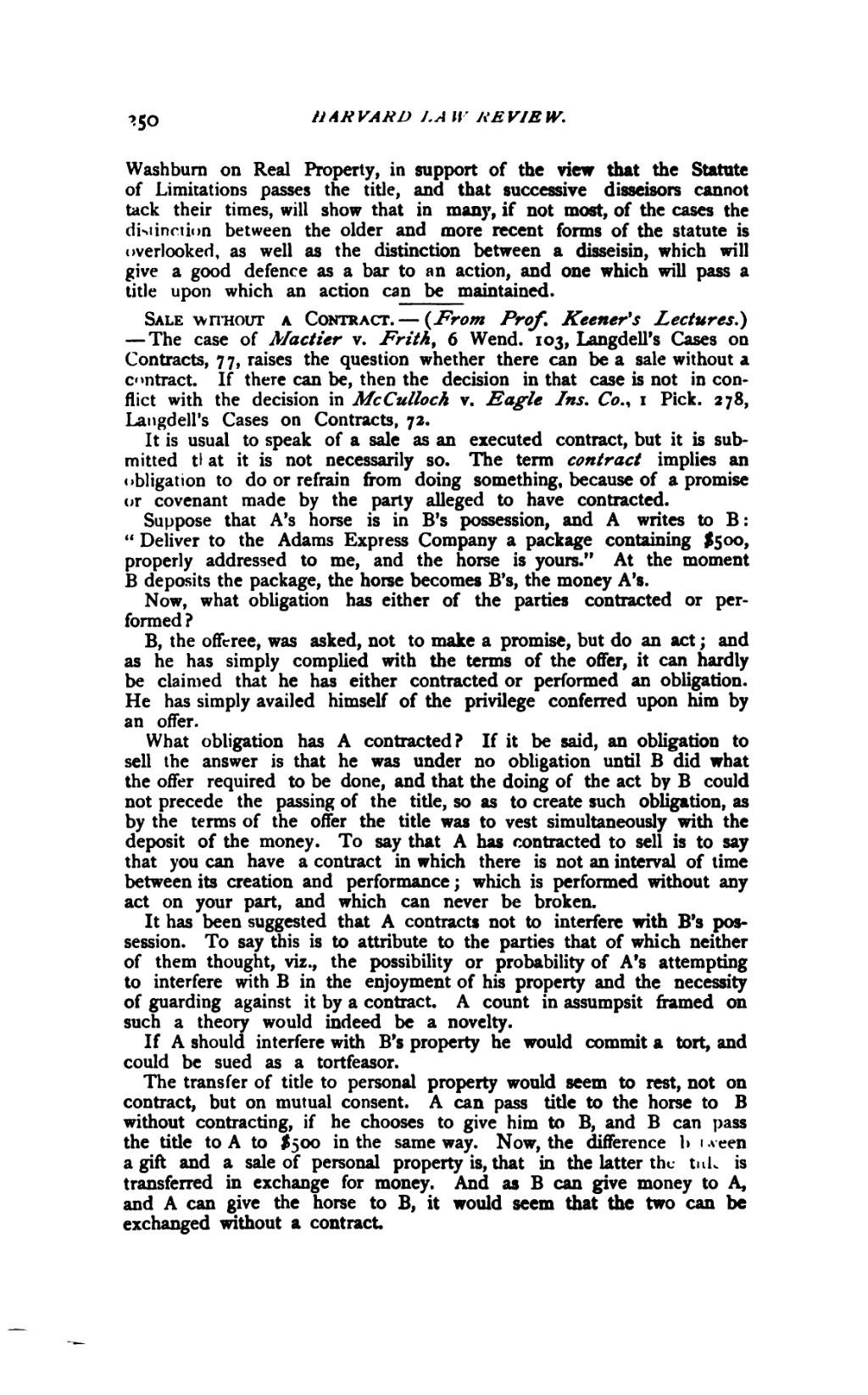Washburn on Real Property, in support of the view that the Statute of Limitations passes the title, and that successive disseisors cannot tack their times, will show that in many, if not most, of the cases the distinction between the older and more recent forms of the statute is overlooked, as well as the distinction between a disseisin, which will give a good defence as a bar to an action, and one which will pass a title upon which an action can be maintained.
Sale without a Contract. — (From Prof. Keener’s Lectures.) — The case of Mactier v. Frith, 6 Wend. 103, Langdell’s Cases on Contracts, 77, raises the question whether there can be a sale without a contract. If there can be, then the decision in that case is not in conflict with the decision in McCulloch v. Eagle Ins. Co., 1 Pick. 278, Langdell’s Cases on Contracts, 72.
It is usual to speak of a sale as an executed contract, but it is submitted that it is not necessarily so. The term contract implies an obligation to do or refrain from doing something, because of a promise or covenant made by the party alleged to have contracted.
Suppose that A’s horse is in B’s possession, and A writes to B: “Deliver to the Adams Express Company a package containing $500, properly addressed to me, and the horse is yours.” At the moment B deposits the package, the horse becomes B’s, the money A’s.
Now, what obligation has either of the parties contracted or performed?
B, the offeree, was asked, not to make a promise, but do an act; and as he has simply complied with the terms of the offer, it can hardly be claimed that he has either contracted or performed an obligation. He has simply availed himself of the privilege conferred upon him by an offer.
What obligation has A contracted? If it be said, an obligation to sell the answer is that he was under no obligation until B did what the offer required to be done, and that the doing of the act by B could not precede the passing of the title, so as to create such obligation, as by the terms of the offer the title was to vest simultaneously with the deposit of the money. To say that A has contracted to sell is to say that you can have a contract in which there is not an interval of time between its creation and performance; which is performed without any act on your part, and which can never be broken.
It has been suggested that A contracts not to interfere with B’s possession. To say this is to attribute to the parties that of which neither of them thought, viz., the possibility or probability of A’s attempting to interfere with B in the enjoyment of his property and the necessity of guarding against it by a contract. A count in assumpsit framed on such a theory would indeed be a novelty.
If A should interfere with B’s property he would commit a tort, and could be sued as a tortfeasor.
The transfer of title to personal property would seem to rest, not on contract, but on mutual consent. A can pass title to the horse to B without contracting, if he chooses to give him to B, and B can pass the title to A to $500 in the same way. Now, the difference between a gift and a sale of personal property is, that in the latter the title is transferred in exchange for money. And as B can give money to A, and A can give the horse to B, it would seem that the two can be exchanged without a contract.
